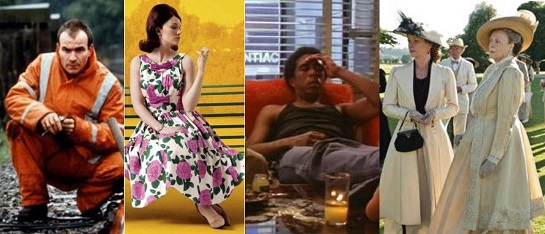|
|
|
Keynote speechesProfessor of Television and Film, University of Reading (UK) Title: Authenticity and the performance of class in British factual TV series Venue: University of Rennes 2 The paper will focus on recent programmes including The Only Way is Essex, Made in Chelsea and other examples of non-scripted (but closely-controlled) factual programmes which might fall into the broad category of Reality TV (but could also be called observational documentary). As well as talking about how class is represented via discourses on taste and gender, for example, it will be argued that performance and narrative (which we might normally associate more with drama than with factual TV) and their relationship with the “authentic” presentation of self, are crucial to the ways that class is mediated in the programmes. I plan to outline a very brief history of how these programmes evolve out of earlier forms of documentary, and borrow from scripted drama genres too, as well as offering some specific analysis of the main, recent, examples in the main body of the talk. Professor of Sociology, American Studies and Film & Media Studies, Rider University (USA) Title: Representations of social class in US radio and television through the twentieth century Venue: Franco-American Institute, Rennes [visit their website] The paper will explore representations of social class in US radio and television through the twentieth century. The core of this presentation will be my research on six decades of television situation comedies that reveals a remarkably persistent contrast of working class to middle class males, and gender reversals in the two classes serve to reinforce the contrast in class. To extend this work back in time, I will compare TV representations to those of US radio based on some of my preliminary findings on radio comedies of the 1930s and 1940s that were the precursors to TV sitcoms. I will also include as context my preliminary findings about representations of manual labor in public art and architecture before, during and after the Great Depression.
Honorary Reader in Film, University of Bath (UK) Title: Ken Loach and the geographies of class Venue: University of Rennes 2 If the issue of class has always structured and fragmented British society, its treatment in British cinema has tended to be partial, often simplistic. Perhaps nowhere can this phenomenon be more clearly observed than in filmic representations of working-class life. However, since the 1960s, it is precisely this area that has been the focus of all of Loach’s work. Refusing to patronise or stereotype, his films occupy the spaces between documentary and fiction, tragedy and farce, the didactic and the comedic; they give direct voice to the marginalised, and empower the dispossessed. In this way, not only do Loach’s films openly remap the contours of class, but also the geographies of British cinema itself. Within these wider parameters, this paper will examine Loach’s notion of democratic filmmaking, and will assess its social and theoretical significance for contemporary film.
Professor of Communication and Culture, Department of American Studies, Indiana University (USA) Title: Locating Class in the African American Cinematographic Archive Venue: Franco-American Institute, Rennes [visit their website] That corpus of cine-memories and trauma, the African American cinematic archive is prefigured by defining cultural precedents of racial disparagement, reductive archetypes first evinced in literature, artistic renderings, popular lore, minstrels, encyclopedic entries endorsed by the scientific community, illustrations in venerated national digests, and the ramblings and rants that passed for raced discourses of the day. These memorializing artifacts of popularized beliefs in the cultural marketplace of the early 20th century framed debates about the “Negro problem” during the era of mass entertainment and “public amusements” and endure to this day in the national psyche.
|


